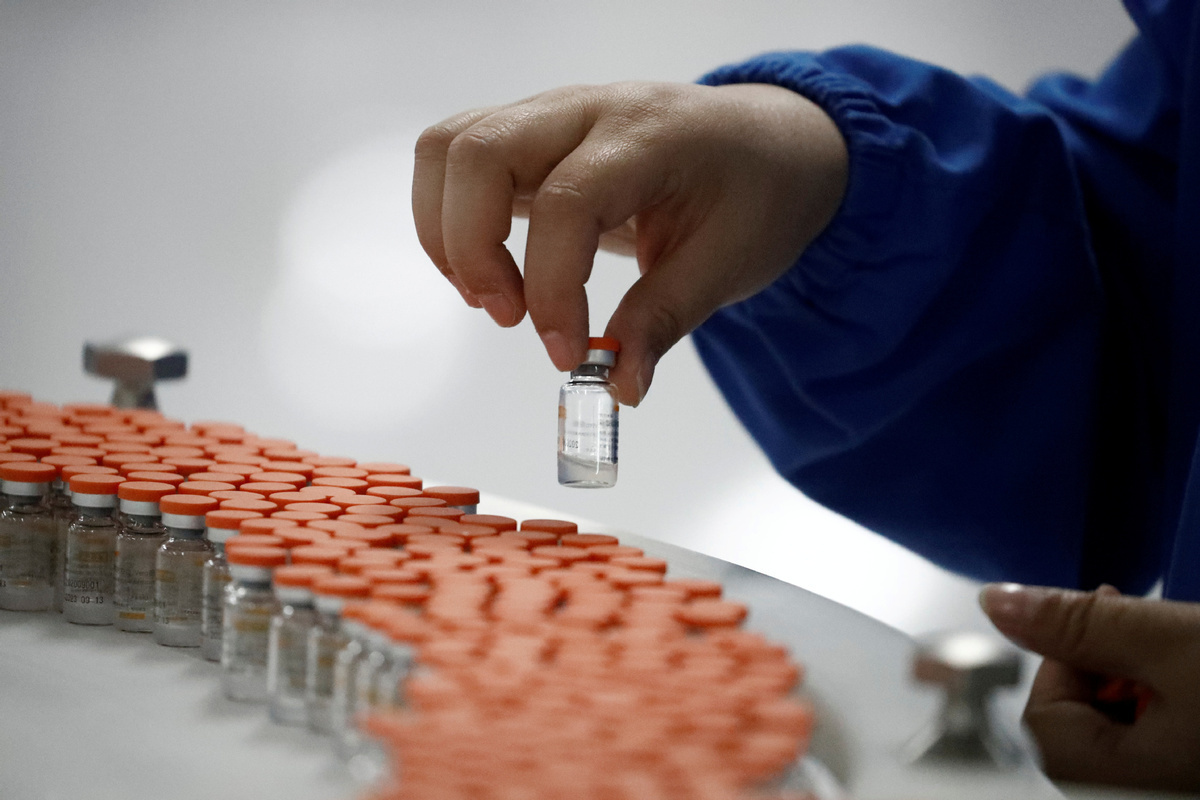Singapore to release Sinovac COVID-19 vaccine stock to private clinics
Xinhua | Updated: 2021-06-07 10:09

SINGAPORE - Singapore's Ministry of Health (MOH) said on Friday night that it will release Sinovac COVID-19 vaccine from its current stock of 200,000 doses to around 20 private clinics, and let them be licensed providers for the Chinese vaccine under the Special Access Route (SAR).
These private clinics should be able to demonstrate the ability to administer the vaccines safely, properly and efficiently. They can provide the vaccine to all Singapore citizens, permanent residents and persons holding Long-Term Visit Passes, who for one reason or other wish to receive the Sinovac vaccine instead of a vaccine which is available on the national program.
The MOH said the licensed providers will be allowed to charge patients receiving the vaccine a fee to cover their costs. For Singapore's 34,000 individuals who were previously rejected from taking the mRNA vaccines or who were allergic to the mRNA vaccine, the government will reimburse them this fee if they decide to receive the Sinovac vaccine.
Details will be made known to these individuals in the coming week, it added.
The SAR is an existing process for the import and supply of unregistered medicines to address unmet medical needs. The ministry said earlier this week that it will use the SAR to open up access to more COVID-19 vaccines other than the two mRNA vaccines authorized for Singapore's national vaccination program, in order to enhance the overall vaccination coverage.
A minority of the rejected individuals will still not be eligible if they have a history of anaphylaxis or allergic reactions to other vaccines, although the MOH will remove certain restriction for those people from June 5.
There are also approximately 2,000 individuals who had developed anaphylaxis or allergic reactions due to the first dose of an mRNA COVID-19 vaccine, who should not receive an mRNA-based vaccine again.
To protect them against COVID-19, MOH is evaluating and will bring in non-mRNA vaccines that are more suitable for them.
"We expect to do this before the end of this year after the vaccines are authorized by the Health Sciences Authority for use in our national vaccination program," the MOH said.
























